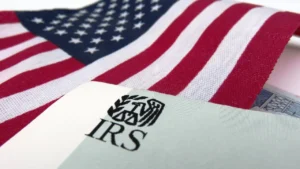Sell Your Life Insurance Policy: Is It Taxable?
Selling your life insurance policy is a smart way to access immediate cash, but it’s natural to wonder: “If I sell my life insurance policy, is it taxable?” The answer depends on several factors, including how much you’ve paid into the policy, its cash surrender value, and the payout you receive. Let’s break it down so you can make informed decisions with confidence.
Disclaimer: This information is for general informational purposes only and should not be considered tax advice. Tax laws and regulations can vary and are subject to change. We strongly recommend consulting with a licensed tax professional to understand your specific situation and ensure compliance with applicable tax laws.
What Is a Life Settlement?
A life settlement involves selling your life insurance policy to a third party for a cash payout. The payout is typically higher than the policy’s surrender value but less than its death benefit. For many, it’s a way to unlock financial flexibility without continuing to pay premiums for a policy they no longer need.
Why it’s worth considering:
- Use the funds for medical expenses, retirement, or debt repayment.
- Avoid lapsing a policy that has value.
- Turn a liability into an asset.
Is Selling My Life Insurance Taxable?
When selling a life insurance policy, it’s important to understand the potential tax implications. Here’s why knowing the tax rules matters:
- Financial Clarity: Ensure you maximize your benefits while minimizing tax liabilities.
- Informed Decisions: Understand how taxes apply to payouts so you can plan effectively.
- Transparency: Avoid surprises by knowing what to expect.
Understanding the Tax Implications of Selling Your Life Insurance Policy
Taxes on a life settlement depend on the following:
Premiums Paid
- The total amount you’ve paid into your policy sets the baseline for tax-free gains.
Cash Surrender Value
- If your payout exceeds the surrender value, the difference may be taxable as ordinary income.
Payout Amount
- Any amount over what you’ve paid in premiums and the surrender value is typically considered a capital gain.
Key Scenarios and Tax Outcomes
Scenario 1
- If your payout is less than the premiums paid, the proceeds are generally not taxable.
Scenario 2
- If the payout exceeds the premiums paid but is less than the cash surrender value, the excess may be taxed as ordinary income.
Scenario 3
- If the payout exceeds both the premiums paid and the cash surrender value, the excess is subject to capital gains tax.
IRS Guidelines on Life Settlement Taxation
The IRS categorizes life settlement proceeds into three tiers:

1) Premium Return
- Non-taxable.
2) Amount Exceeding Premiums but Below Surrender Value
- Taxed as ordinary income.
3) Amount Exceeding Surrender Value
- Taxed as a capital gain.
Are There Any Tax Exemptions?
Yes, viatical settlements—policies sold by terminally ill policyholders—are generally tax-exempt. These settlements provide crucial financial relief without the burden of taxation.
Steps to Minimize Tax Liabilities
1) Work with a Tax Advisor
- Professional guidance ensures accurate reporting and strategic tax planning.
2) Maintain Documentaiton
- Keep detailed records of premiums paid and policy details.
3) Explore Exemptions
- Determine if your situation qualifies for reduced or no tax liability.
Frequently Asked Questions About Life Settlement Taxes
It depends. Proceeds exceeding premiums but below the surrender value are taxed as income, while amounts above the surrender value are taxed as capital gains.
No, viatical settlements for terminally ill policyholders are typically tax-exempt.
Accurately documenting premiums and working with a tax advisor can help minimize your tax liabilities.
Yes, term policies often have different tax treatments due to their lack of cash surrender value.
Ready to Sell Your Life Insurance Policy?
Take the first step toward financial freedom. Use our Life Settlement Calculator or connect with our experts today to learn more about your policy’s value and tax implications.
